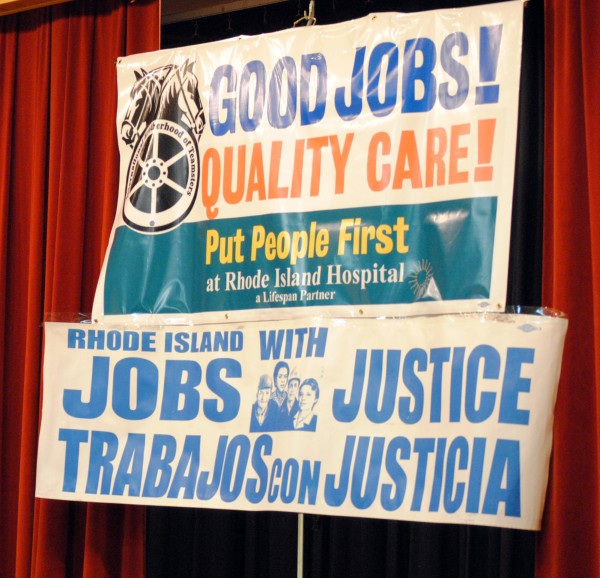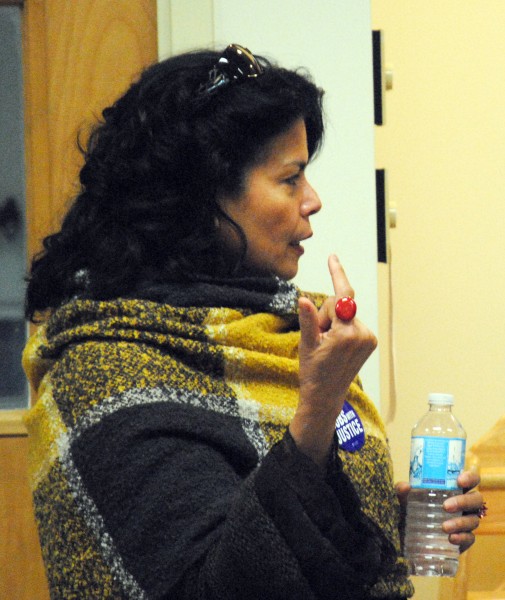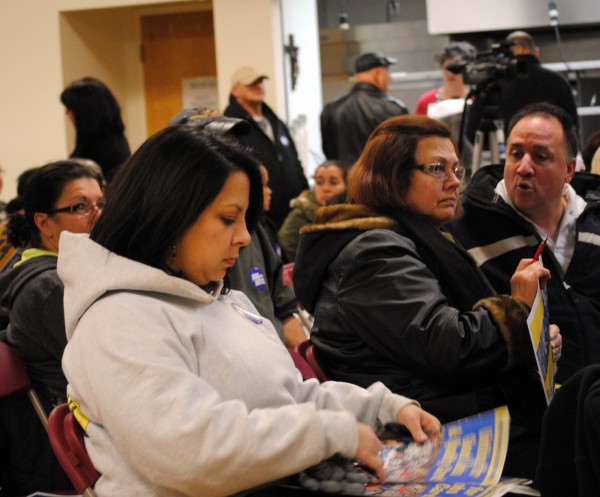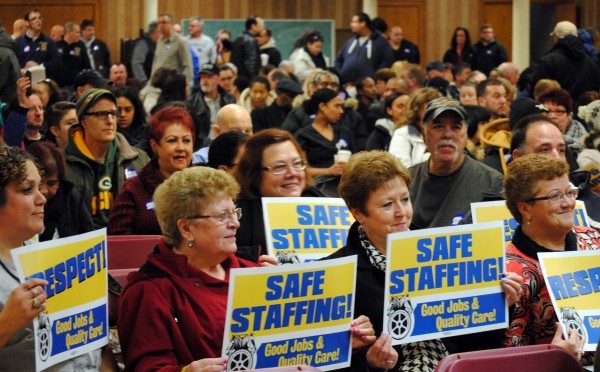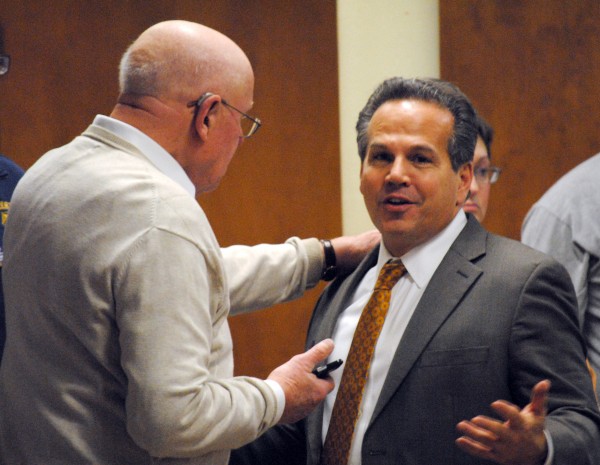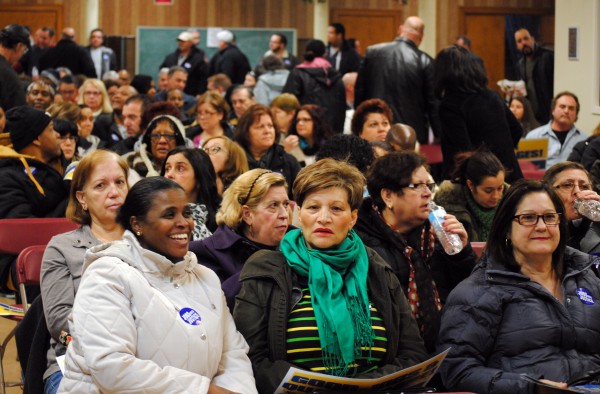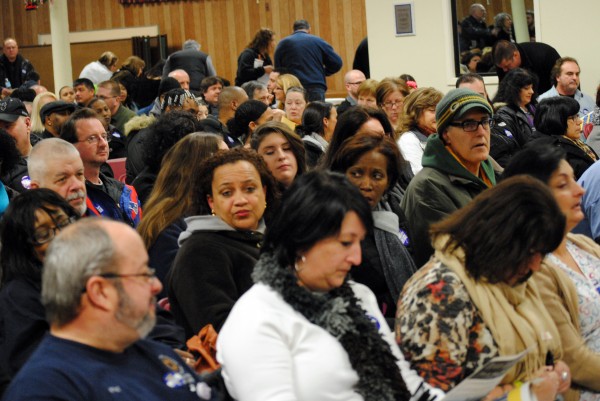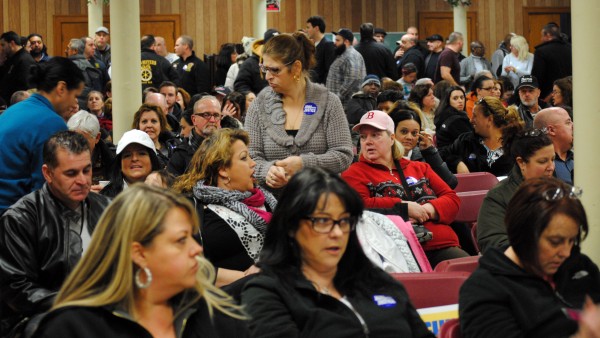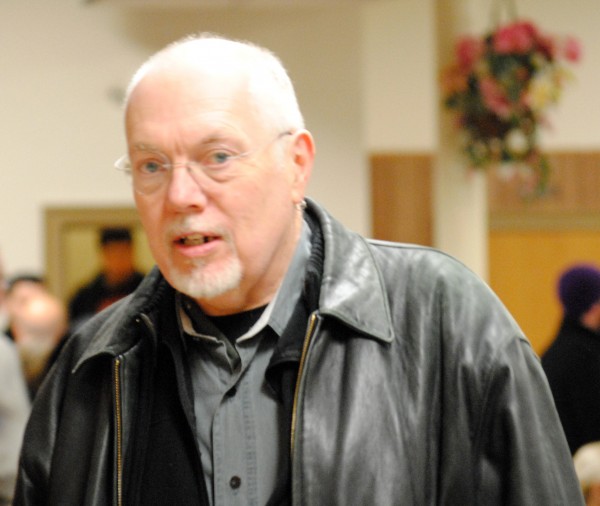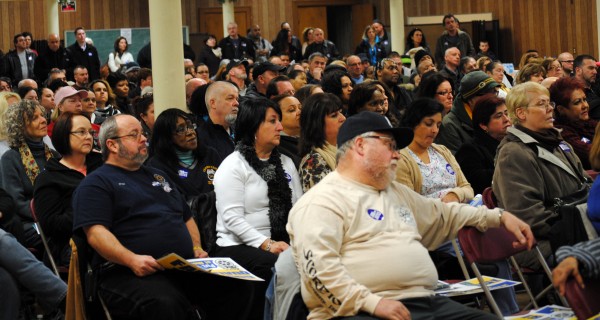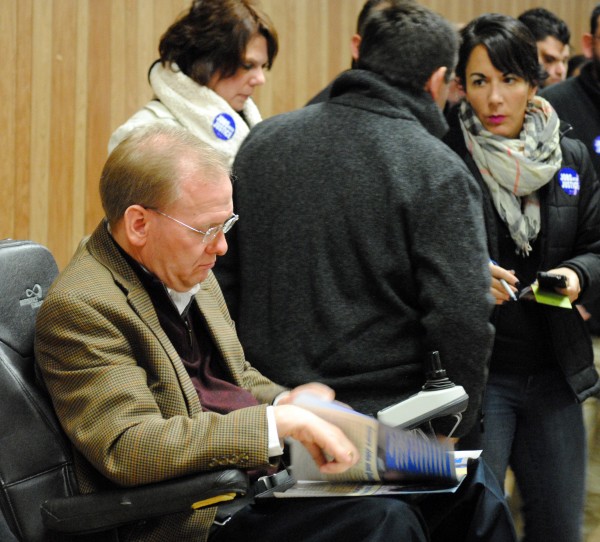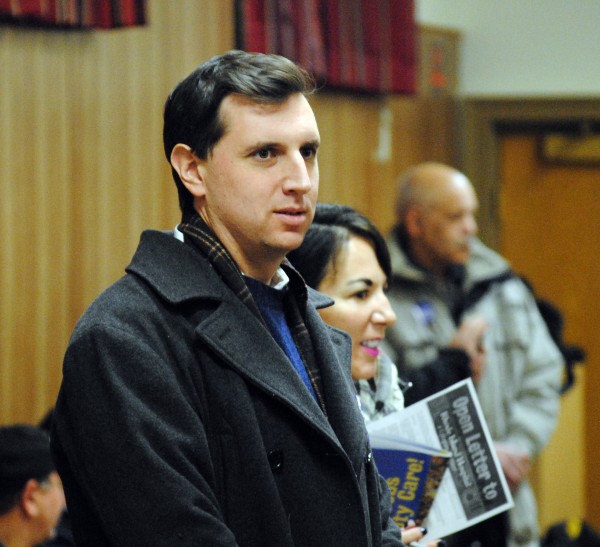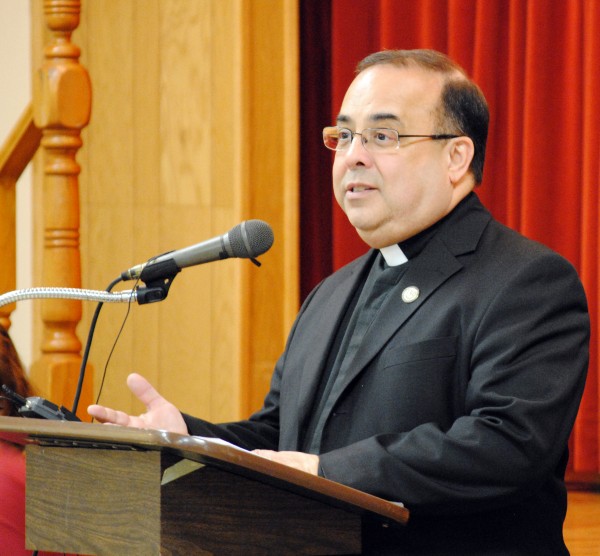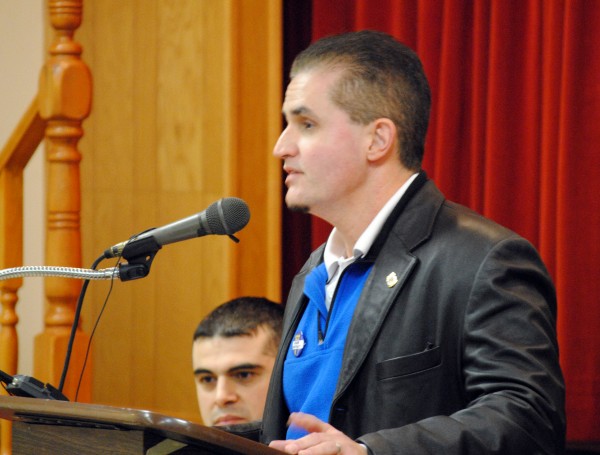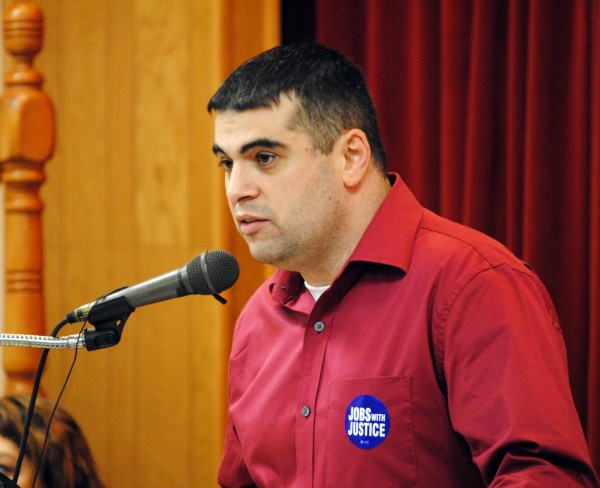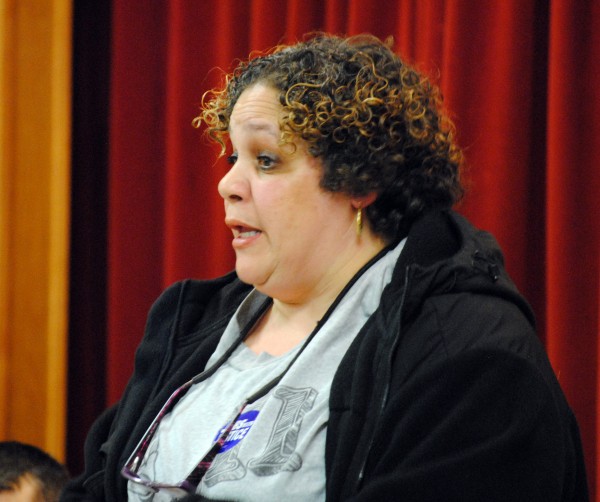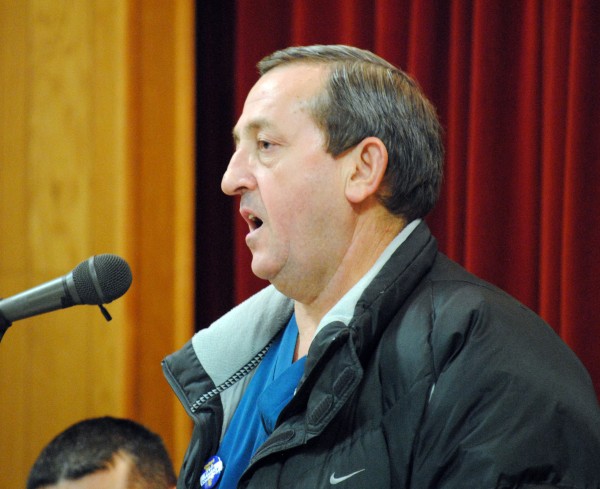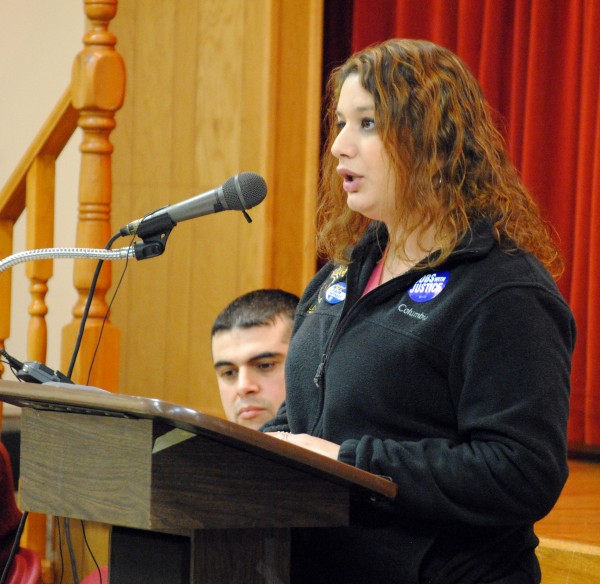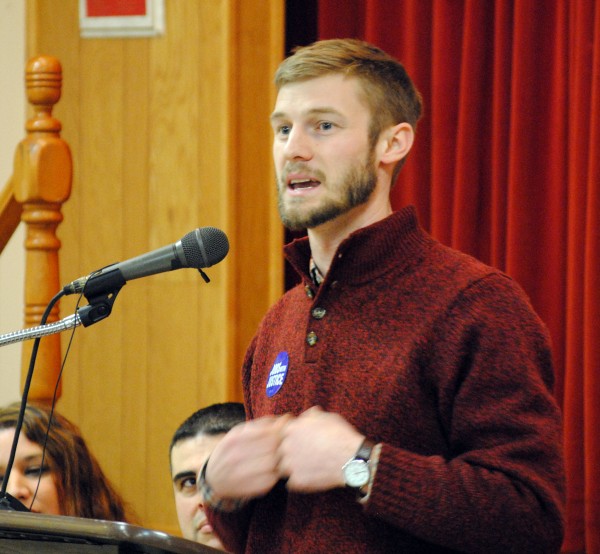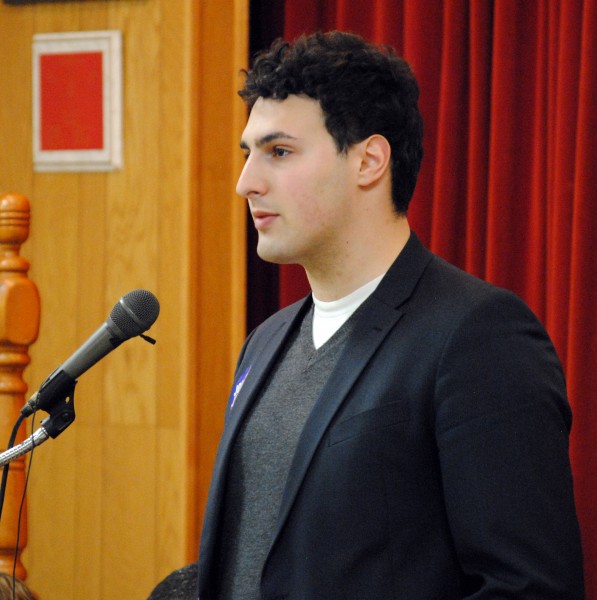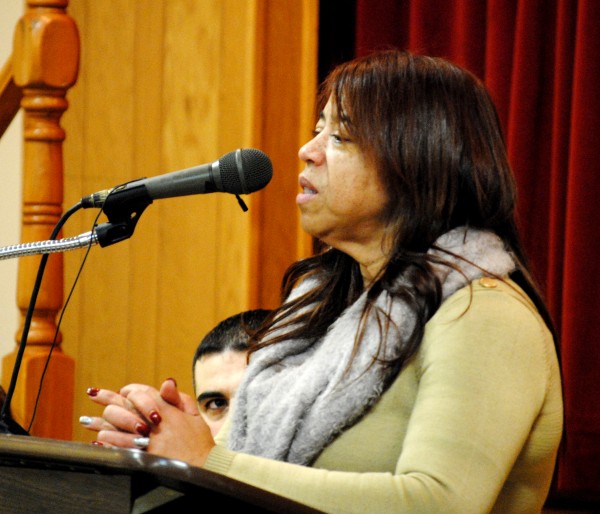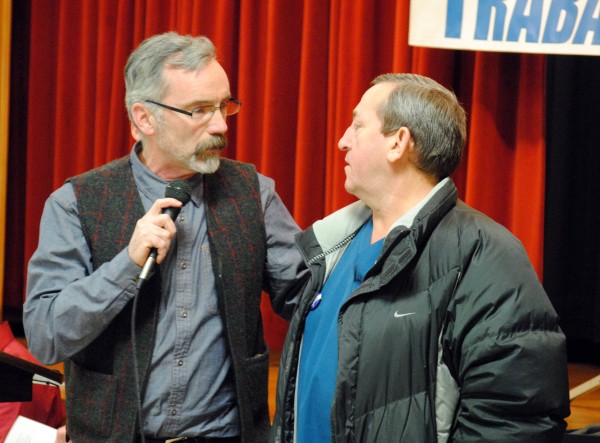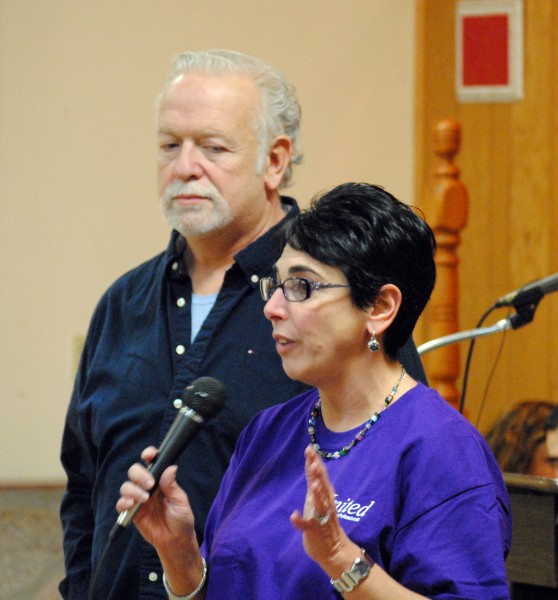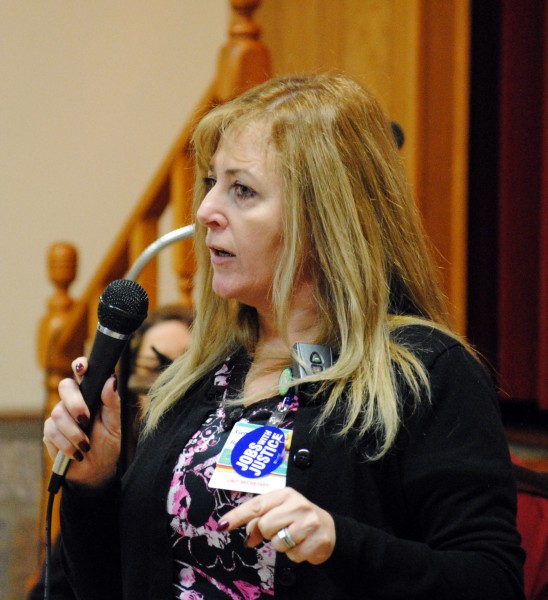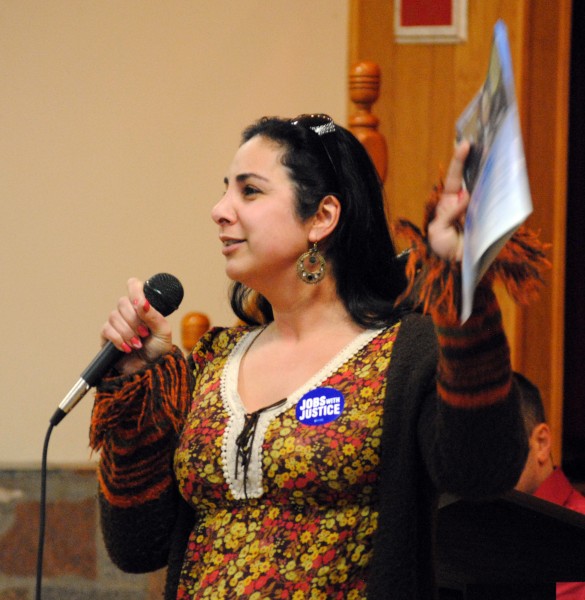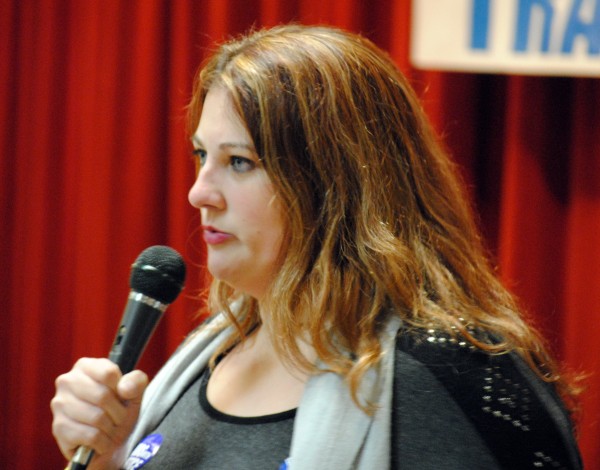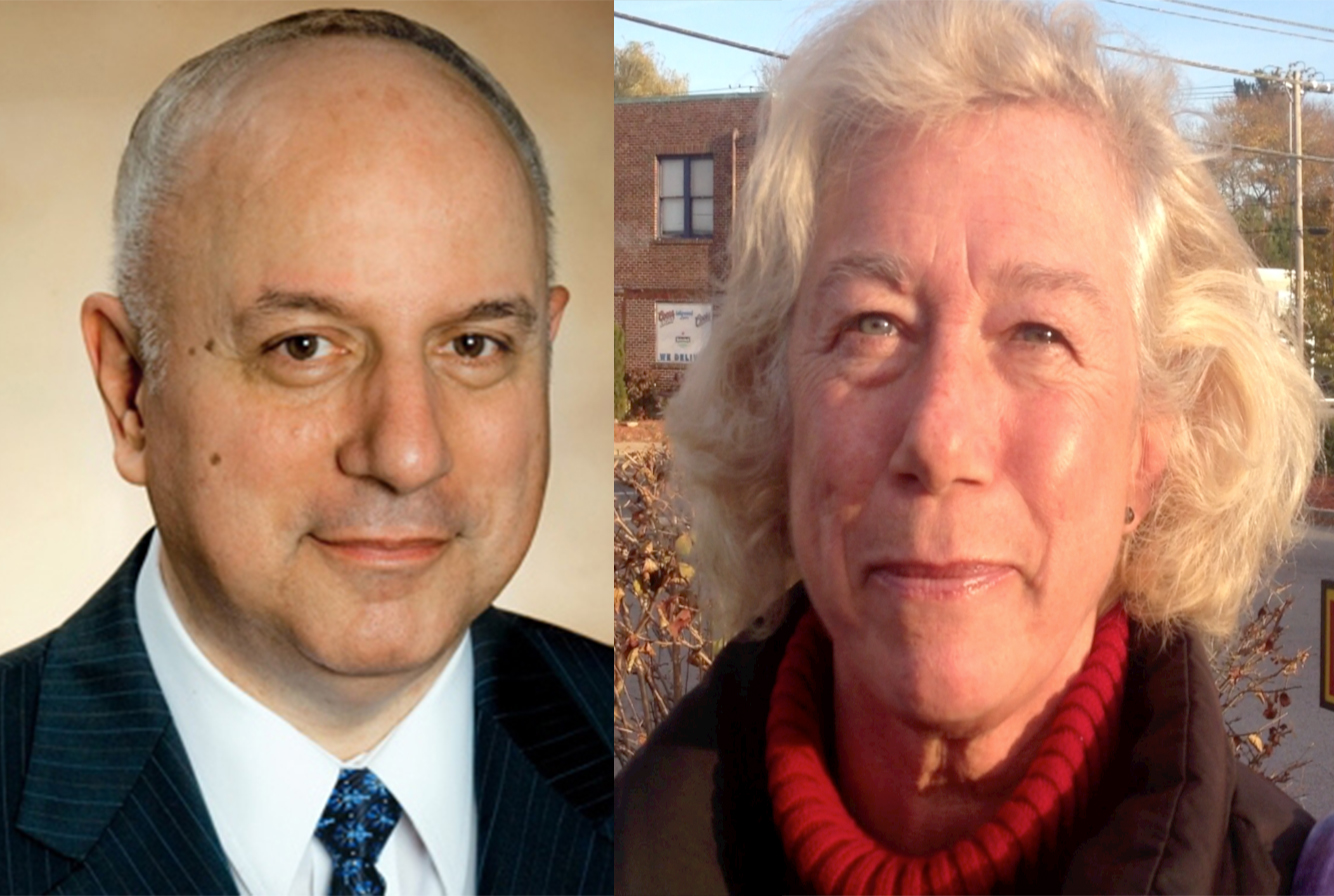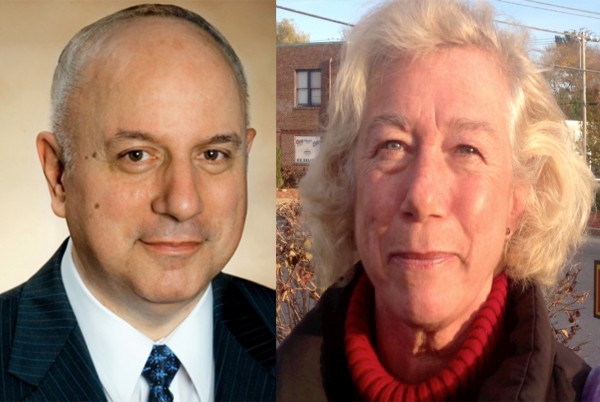The Environmental Justice League of Rhode Island (EJLRI) has created a brilliant position paper, “National Grid’s Liquefied Natural Gas (LNG) Liquefaction Facility: Toxic Hazards in the Port Providence: Proposals for a Just Transition” that eviscerates National Grid‘s plans to build a new liquefaction facility for fracked LNG at Fields Point in South Providence. Over the next few days RI Future will be presenting the EJLRI’s position paper in its entirety.
Solutions and Alternatives
The information presented in the previous posts show that in addition to not being necessary, National Grid’s proposed LNG Liquefaction Facility would be dangerous and would contribute to existing environmental racism. LNG Liquefaction is not needed in Rhode Island in general, and it certainly should not be placed in the most toxic and most impoverished part of the state.
The immediate solution is to stop this facility from being built. The Federal Energy Regulatory Commission (FERC) needs to deny National Grid LNG LLC’s application, and the RI Department of Environmental Management (RI DEM) and RI Coastal Resources Management Council (RI CRMC) need to deny the state level permits.
That being said, the proposed liquefaction facility is not the only problem outlined in this position paper. Even without the added significant risks of the liquefaction facility, the existing LNG storage tank, the Motiva oil terminal, the Univar chemical plant, the Enterprise LPG terminal, and other facilities in the area all pose significant environmental health hazards, and create the overall context of environmental racism. Toxic and hazardous facilities are dangerous for communities and dangerous for workers. Yet families are dependent on them for jobs, municipalities are dependent on them for tax income, and the way our socioeconomic system is set up we are all collectively dependent on the products they produce. Regardless of our dependency, the reality of climate science is that the fossil fuel / petrochemical industry is rapidly pushing our planet past its limits, producing present and future catastrophic impacts, and making people sick, especially front-line communities of color and indigenous communities. Our dependency on these industries is literally killing us.
As an organization, the EJ League is interested in big picture, long term, real solutions to interlocking crises that impact communities of color, marginalized communities, and planetary ecosystems. We are members of three national coalitions of grassroots, membership based organizations: Right to the City, Grassroots Global Justice, and Climate Justice Alliance. Together, and lead by our members and our communities, we are developing and sharing solutions that address these intersecting crises from the grassroots. These community based solutions are in opposition to the corporate top down false solutions that pretend to address a single symptom while reinforcing the underlying root causes of the problems.
True solutions are rooted in the work of grassroots internationalism, and using the framework of a “Just Transition”. We are collectively building a different context and a different system, an economy for people and the planet. The Just Transition framework emerged from partnerships between environmental justice and labor organizations. In the words of the Just Transition Alliance, “together with front-line workers, and community members who live along the fence line of polluting industries, we create healthy workplaces and communities. We focus on contaminated sites that should be cleaned up, and on the transition to clean production and sustainable economies.”
As part of the Climate Justice Alliance (CJA) Our Power Campaign, we are part of a collaborative that is:
uniting front-line communities to forge a scalable, and socioeconomically just transition away from unsustainable energy towards local living economies to address the root causes of climate change.
“We are rooted in rooted in Indigenous, African American, Latino, Asian Pacific Islander, and working class white communities throughout the U.S. We are applying the power of deep grassroots organizing to win local, regional, statewide, and national shifts. These communities comprise more than 100 million people, often living near toxic, climate polluting energy infrastructure or other facilities. As racially oppressed and/or economically marginalized groups, these communities have suffered disproportionately from the impacts of pollution and the ecological crisis, and share deep histories of struggle in every arena, including organizing, mass direct action, electoral work, cultural revival, and policy advocacy.
“Together we are strengthening relationships between community based organizations, environmentalists, labor unions, food sovereignty/sustainable agriculture groups and other sectors of society.
“As CJA we are coalescing our power to reshape the economy and governance in the coming decades we are communities united for a just transition.”
CJA’s Our Power Campaign has the long term goals to: 1) End the Era of Extreme Energy, and 2) Implement a Just Transition to Local Living Economies. This will be achieved by:
- Building Local Living Economies with a model that that centers on: Zero Waste, Regional Food Systems, Public Transportation, Clean Community Energy, Efficient Affordable and Durable Housing, and Ecosystem Restoration and Stewardship
- Building Community Resilience: Creating climate jobs that will build stronger, resilient, and more equitable communities through Grassroots Economies (ex. worker owned cooperatives) and Rights to Land, Water, and Food Sovereignty.
Economic strategies around Just Transition require strong partnerships between environmental justice community advocates and the labor movement. Too often the corporate 1 percent strategy of divide and conquer is successful, but Just Transition pushes us to build powerful working class alliances to overturn the economic and political power structures that simultaneously harm workers, create widespread economic inequality and poverty, and destroy the planet’s ability to sustain life. There is a growing international movement to change this, and the following reports outline some of the strategies to build strong labor/environmental alliances around energy systems and a Just Transition:
- Trade Unions for Energy Democracy white paper: Power to the People: Toward Democratic Control of Electrical Generation
- Labor Network for Sustainability report: Clean Energy Future: Protecting the Climate, Creating Jobs, Saving Money
Just Transition in Port of Providence
Working with our national alliances and using these strategic frameworks, EJ League will continue to convene local and regional coalitions to develop and implement Just Transition strategies in Rhode Island, focusing on the Port of Providence as an urgent need. Our goal is to develop concrete strategies and tactics to leverage a rapid transition away from natural gas and all fossil fuels, with democratic front-line community ownership over the development of the sectors for truly renewable energy and energy efficiency work. Through workshops, teach-ins, and hosting a Just Transition Assembly with Grassroots Global Justice in late summer / early fall, we will be doing the collective work of developing local solutions to massive social and planetary problems. We will share our joint understandings and perspectives on the problems, learn about the frameworks and strategies that are effective elsewhere, and will forge pathways to transform our oppressive realities.
There are too many solutions and alternatives to list, and most solutions will be built collectively through praxis and not through theory. As a starting point, one could easily envision how the $100 million price tag for the proposed liquefaction facility could be better spent in ways that would address energy needs, create jobs in the economically marginalized and oppressed front-line communities next to the Port, support renewable energy and energy efficiency, and build greater community health instead of increased toxic risk. With the high percentage of old housing stock and rental units in low income communities, there is a large need to improve housing quality with weatherization, energy efficiency, and improvements in indoor air quality, lead abatement, and other healthy housing requirements. This investment would reduce the need for heating fuels, improve health outcomes, and would be able to employ many people from the community.
Job training programs around weatherization and housing work are already in place, and are focused on people of color, youth, and people with records who are excluded from many other sectors of the dominant economy. EJ League has a Board Member who is a weatherization job training specialist, energy auditor, and is working on seeking investors to build a production facility for cellulose to be used in blown-in insulations and home weatherizations. Worker owned cooperative enterprises in the industries of energy efficiency would transform economic power dynamics, bring democratic control into the workplace, and build wealth at the local level. These types of economic developments would be community owned, community led, would employ community members, and would support true community wealth development in stark contrast with the corporate fossil fuel and petrochemical model developments that poison, displace, and extract wealth at the expense of community wellbeing.
In addition to worker owned businesses for energy efficiency, we need community owned renewable energy development. National Grid is required to make a bare minimum level of investment into renewables, and is allowed to add a surcharge to all consumer bills to cover this. Despite the fact that everyone is paying for this, National Grid’s limited investments into renewables have been in affluent white suburban communities. Front-line communities, which have been sacrifice zones for hazardous energy developments for generations, need massive investments in renewable energy. But these investments cannot operate like most investments in the dominant capitalist economy, which come in from outside with disregard for residents, take advantage of poverty conditions, lead to gentrification and displacement, and extract wealth for the investor’s return on investment. We are also not asking for charity or handouts that would support public relations campaigns for polluting industries. We are demanding reparations.
We are exploring mechanisms to make it possible for renewable energy to benefit our communities, given that current capitalist market mechanisms favor larger corporations, municipalities with surplus budgets and strong tax bases, and families that are homeowners who can afford upfront costs in order to get the return on their solar/renewable energy investments. We are determined to make renewable energy a working reality that benefits low income communities of color in multiple ways, from reduced toxic hazards, lowered bills, better jobs, and shifting away from energy sources that are literally killing us. We know this will not happen overnight, and it will be a massive cross sector effort to manifest this vision. But we also know that we cannot afford to wait, and nothing is more urgent. We invite you to join us.
See also:
● Flawed Proposal: Background info on National Grid’s unnecessary project
● Potential Disasters: dangerous facility in a high risk area
● Environmental Racism: ongoing and underlying environmental justice issues
● Climate Change: it causes climate change and is at risk from climate impacts
● Public Health: health disparities and impacts on health care institutions
● Economic Inequality: high cost project that will cause economic damage
● Alternatives and Solutions: Strategies for Climate Justice & a Just Transition


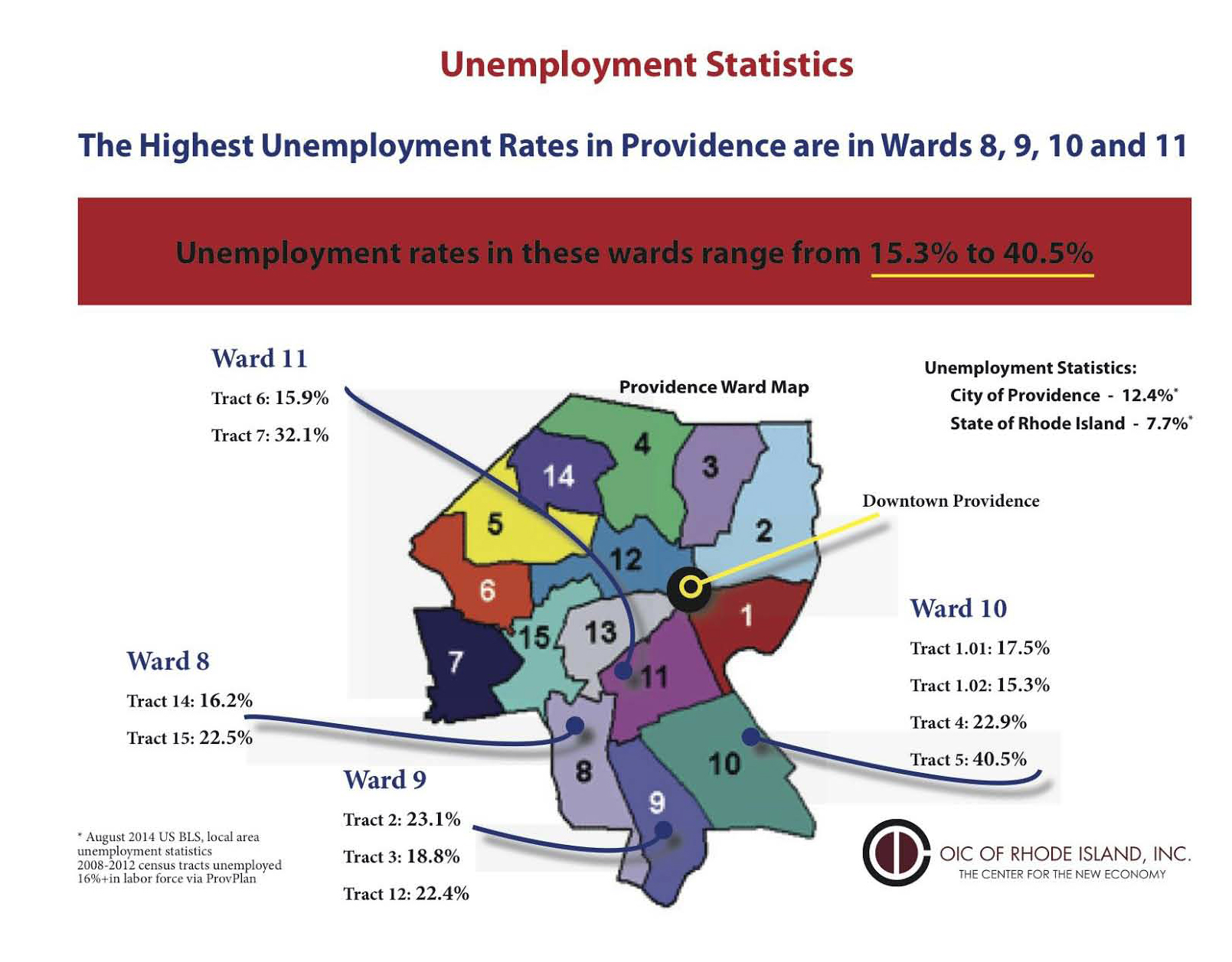



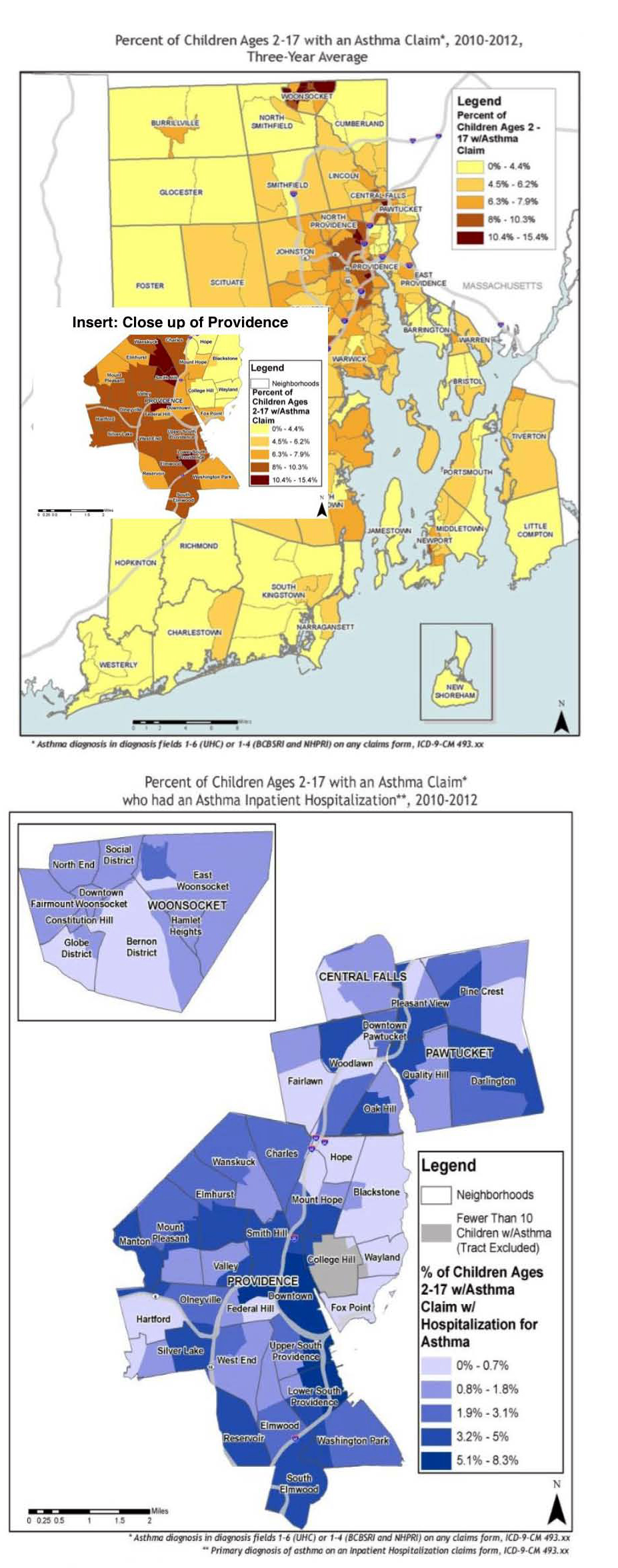 At hearings and public events about the proposed liquefaction facility, multiple community members have spoken out about issues of high asthma rates in the community being a major concern. Public health data backs up this concern, and shows that the area is one of the state’s largest asthma hot spots. While most of the state has asthma rates of 04.4 percent or 4.56.2 percent, most of Providence has asthma rates of 8 – 10.3 percent and the neighborhood next to I95 and the Port has the highest levels in the state at 10.4 – 15.4 percent. (
At hearings and public events about the proposed liquefaction facility, multiple community members have spoken out about issues of high asthma rates in the community being a major concern. Public health data backs up this concern, and shows that the area is one of the state’s largest asthma hot spots. While most of the state has asthma rates of 04.4 percent or 4.56.2 percent, most of Providence has asthma rates of 8 – 10.3 percent and the neighborhood next to I95 and the Port has the highest levels in the state at 10.4 – 15.4 percent. (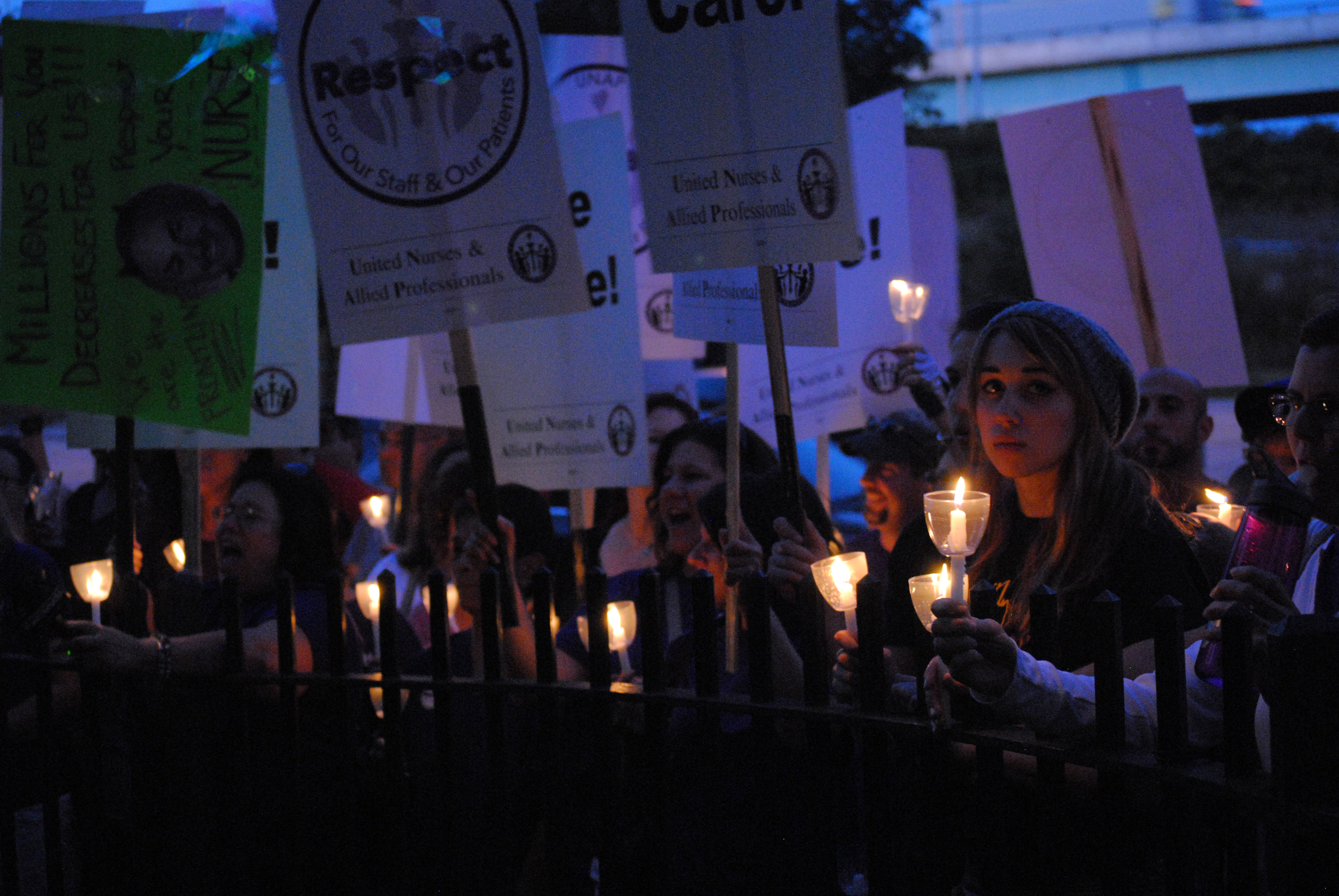
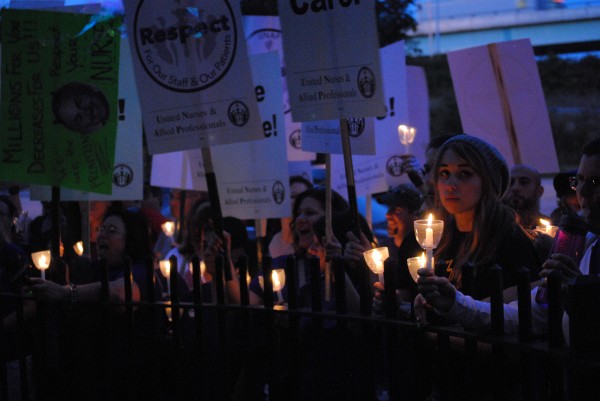 Members of the United Nurses and Allied Professionals (UNAP), Local 5098, at Rhode Island Hospital, with labor and community allies, held a candlelight vigil and march Thursday evening to call attention to to unsafe staffing levels and other problems that continue to remain an issue in negotiations. UNAP members have been working without a contract since
Members of the United Nurses and Allied Professionals (UNAP), Local 5098, at Rhode Island Hospital, with labor and community allies, held a candlelight vigil and march Thursday evening to call attention to to unsafe staffing levels and other problems that continue to remain an issue in negotiations. UNAP members have been working without a contract since 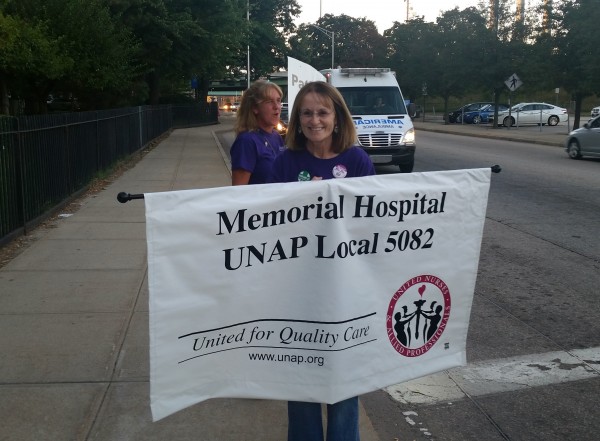
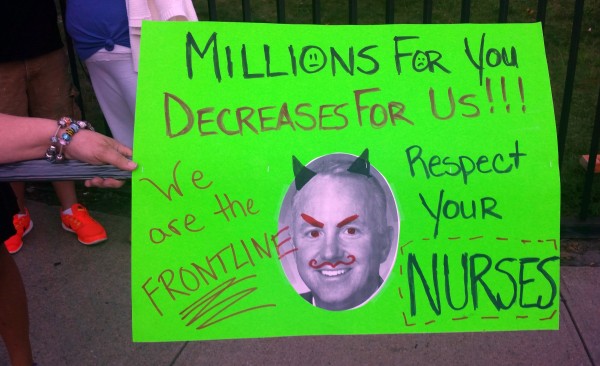

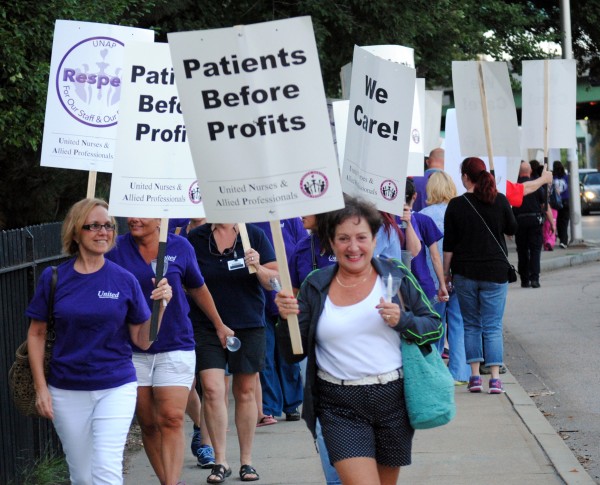
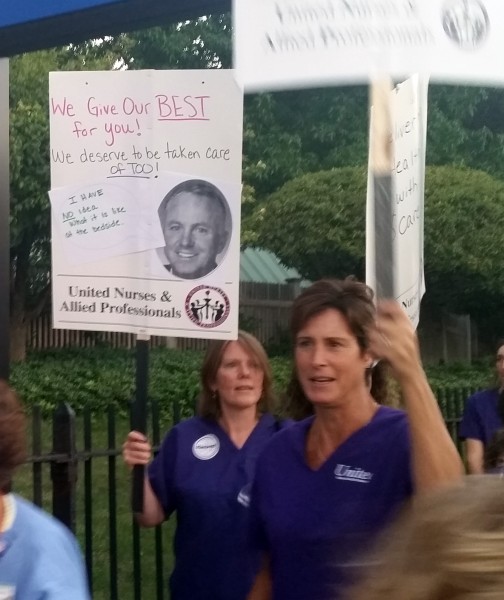
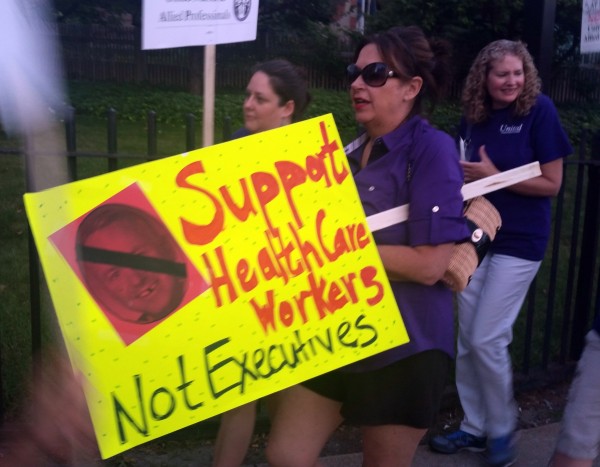
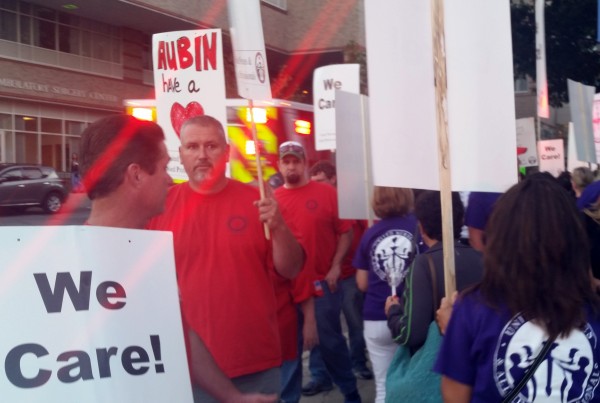
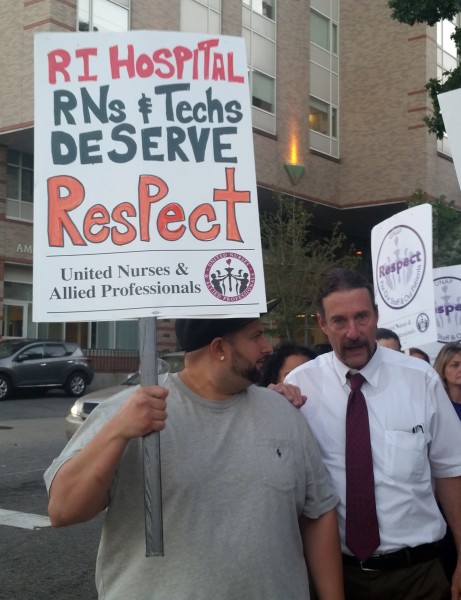
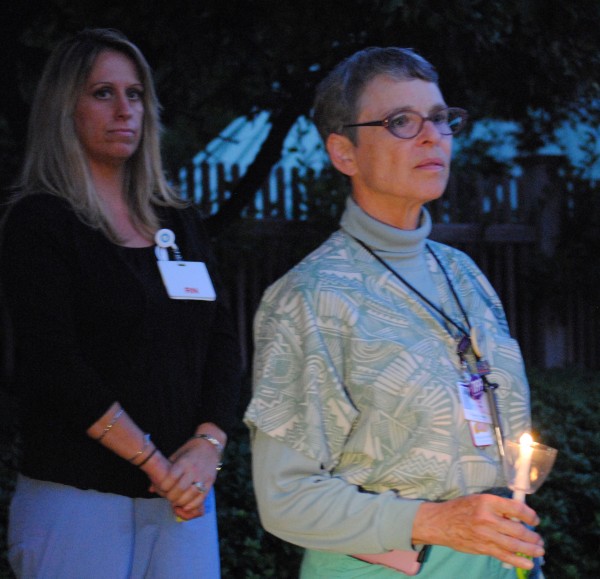
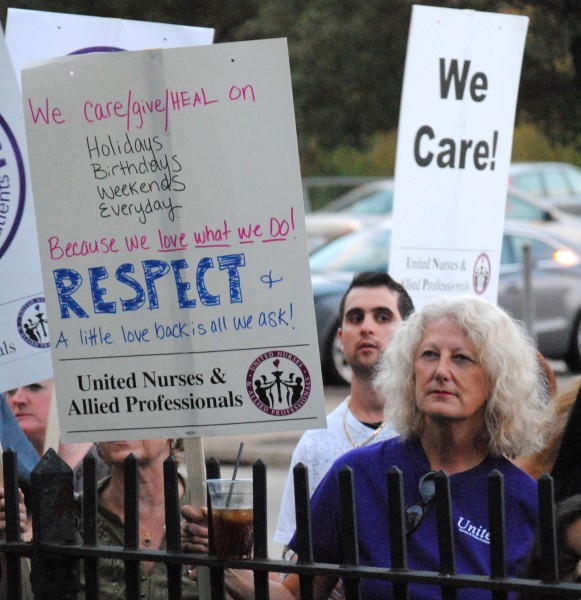
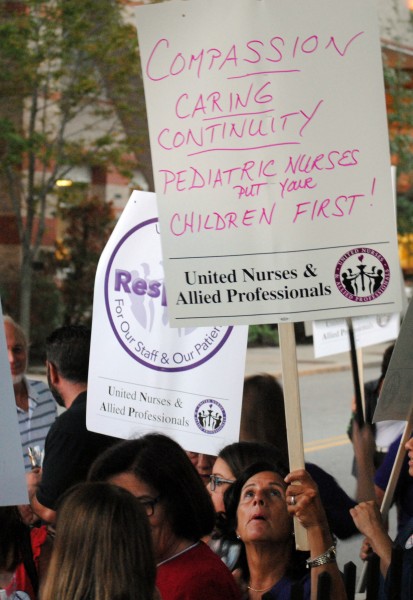
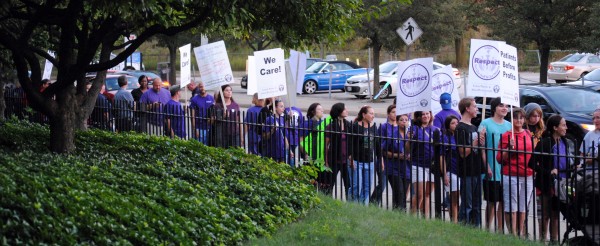

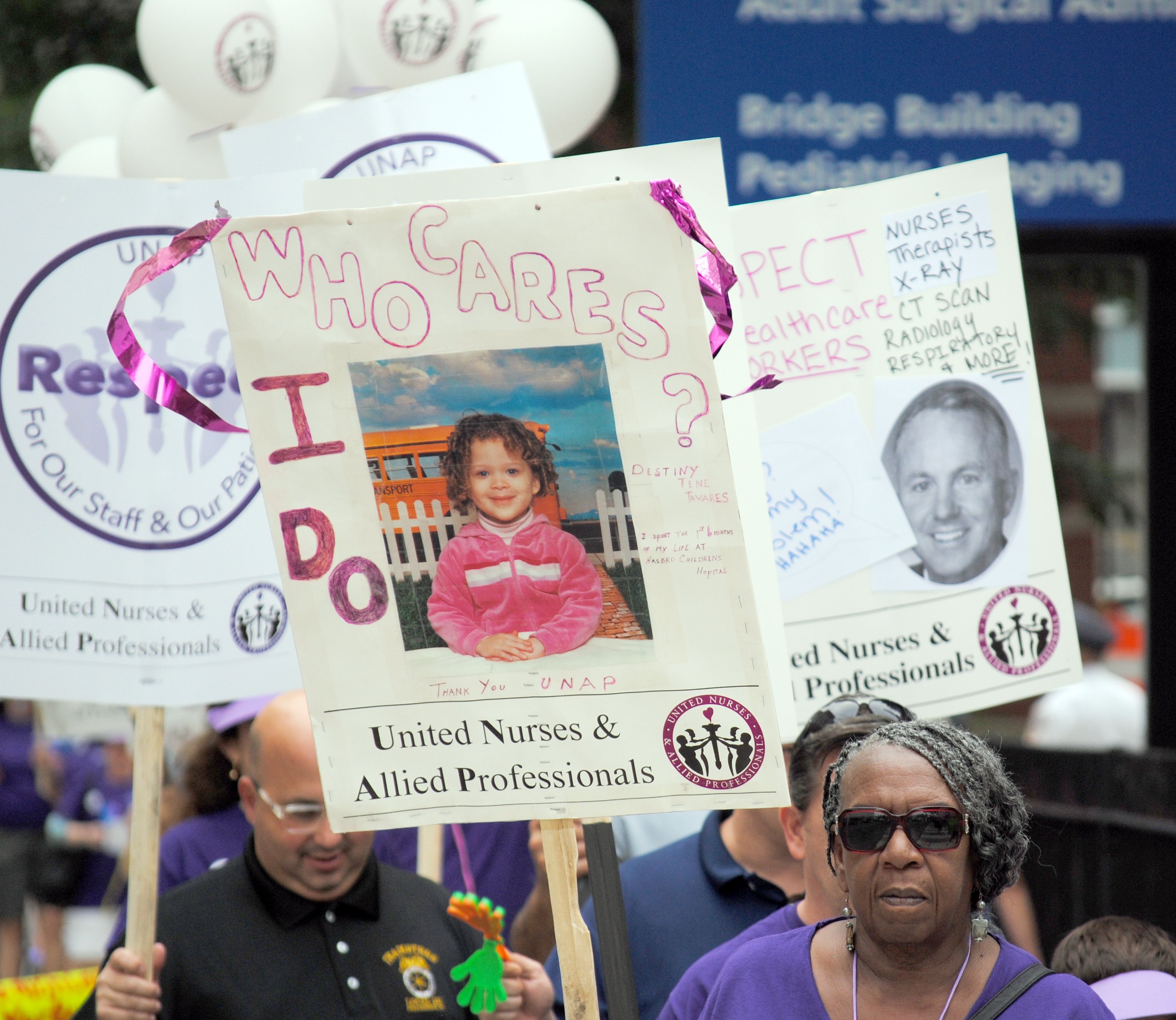
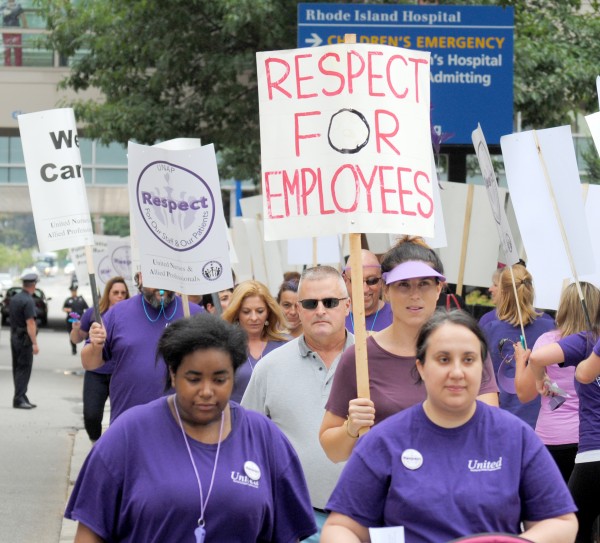
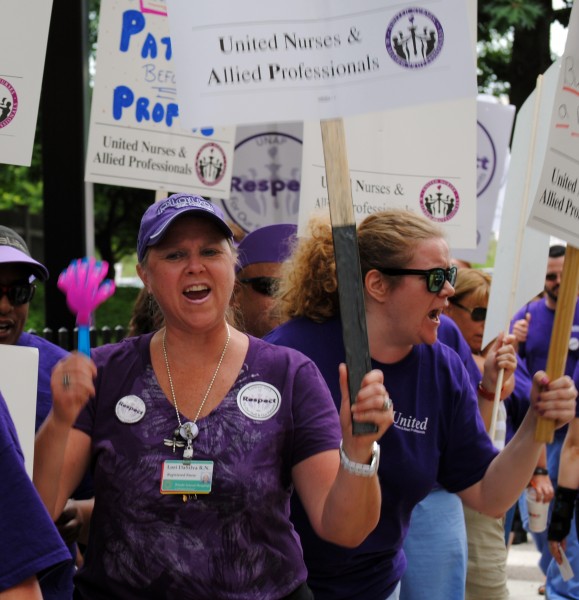
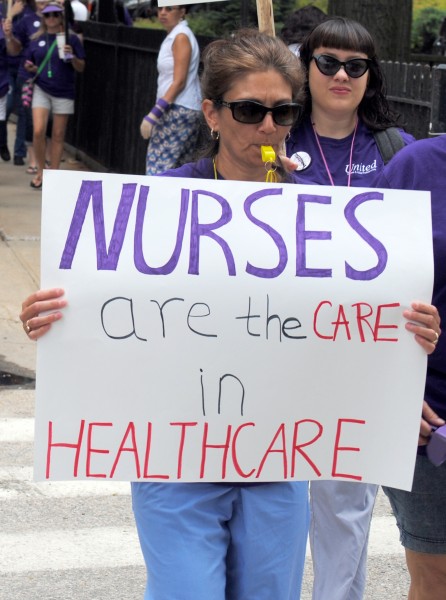
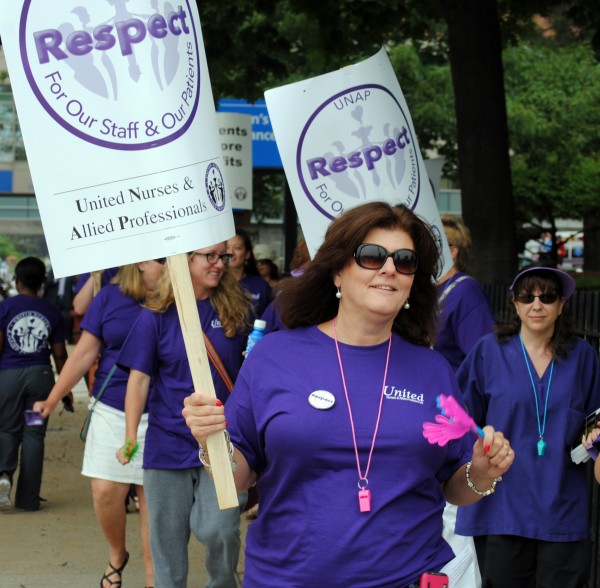
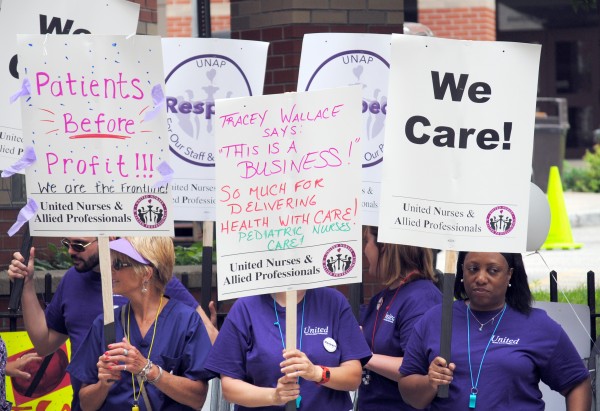
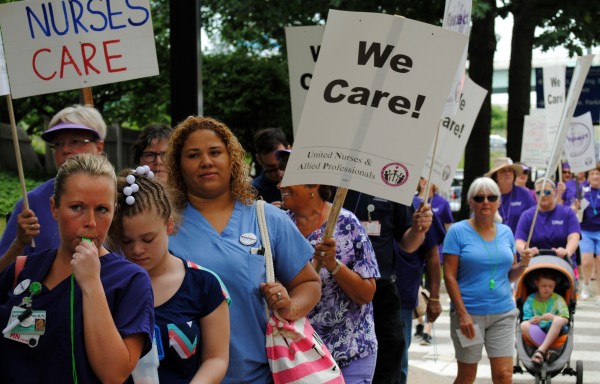

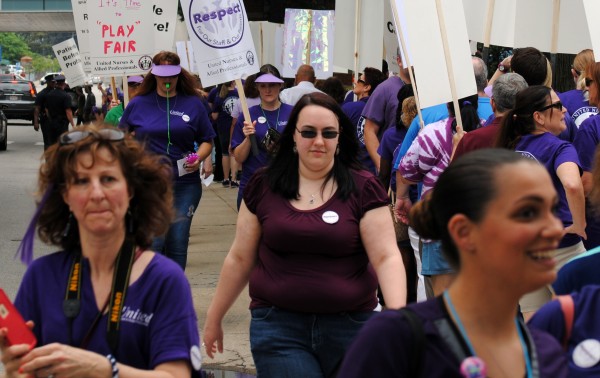

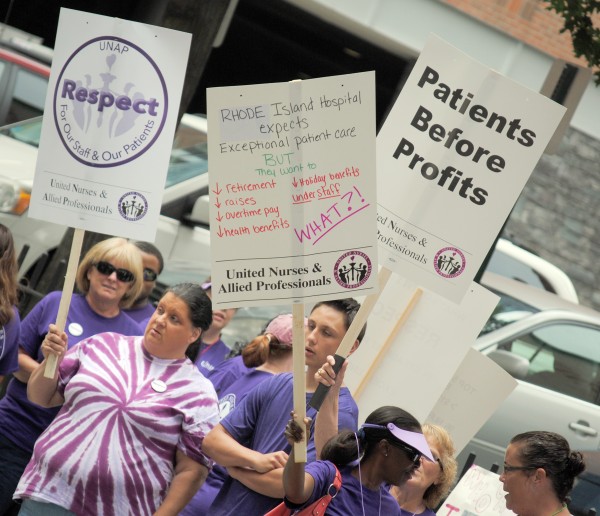
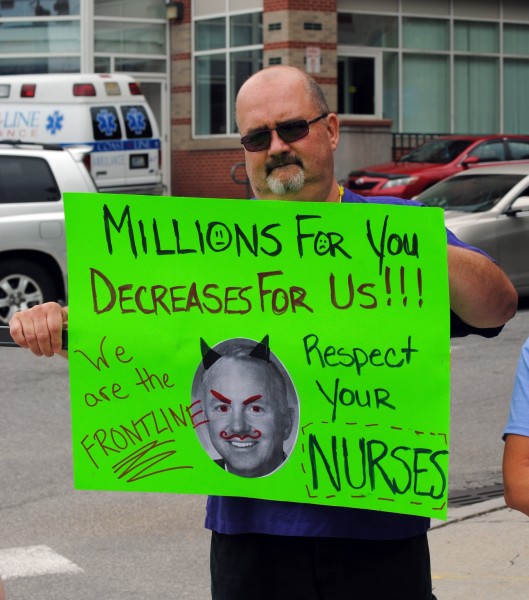
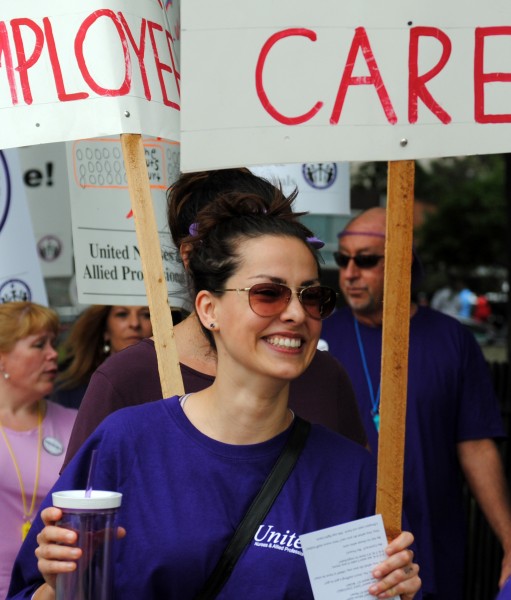
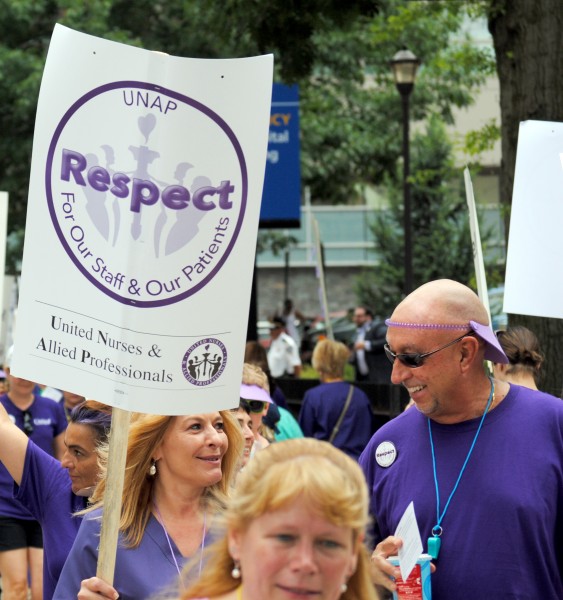
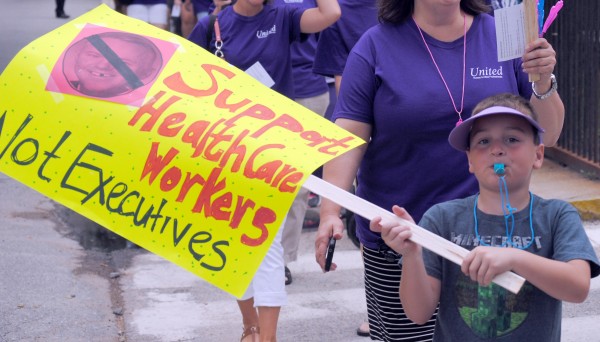
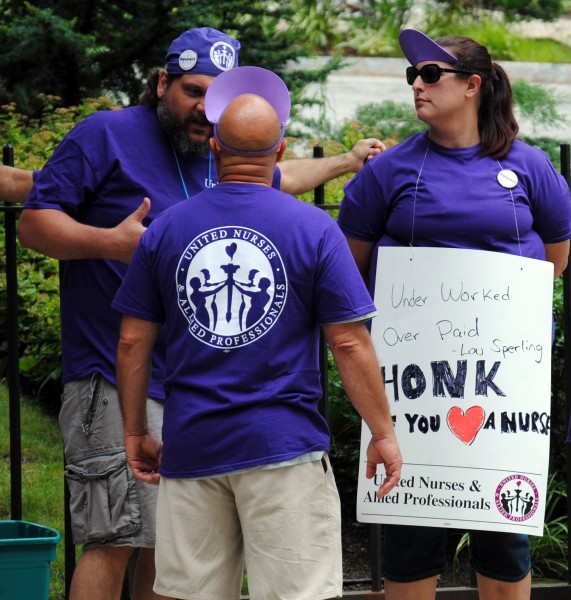
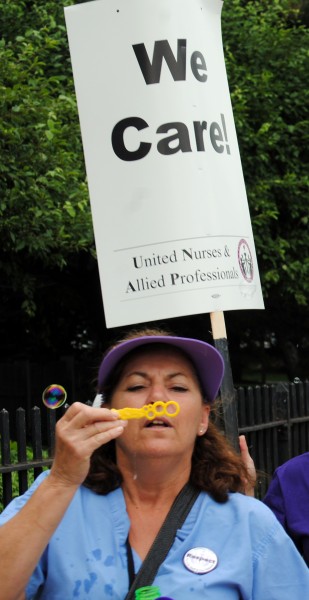


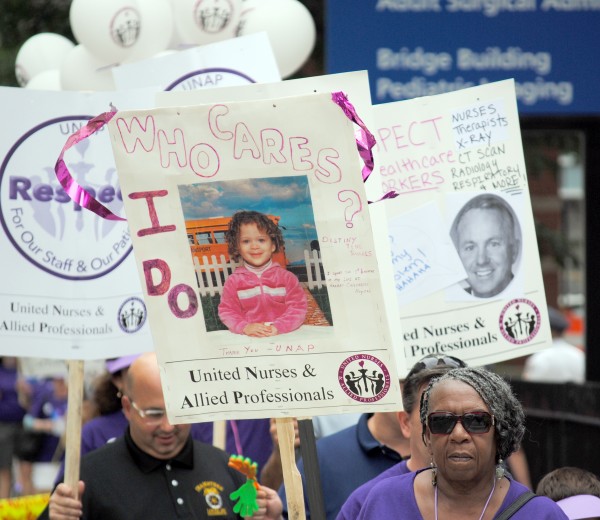

 Imagine a plan sitting at the RI Department of Health (RIDOH) that would reduce health care spending in Rhode Island by 15 to 30 percent. A plan with the added benefit of improving health care outcomes “
Imagine a plan sitting at the RI Department of Health (RIDOH) that would reduce health care spending in Rhode Island by 15 to 30 percent. A plan with the added benefit of improving health care outcomes “ Neighborhood Health Stations would
Neighborhood Health Stations would 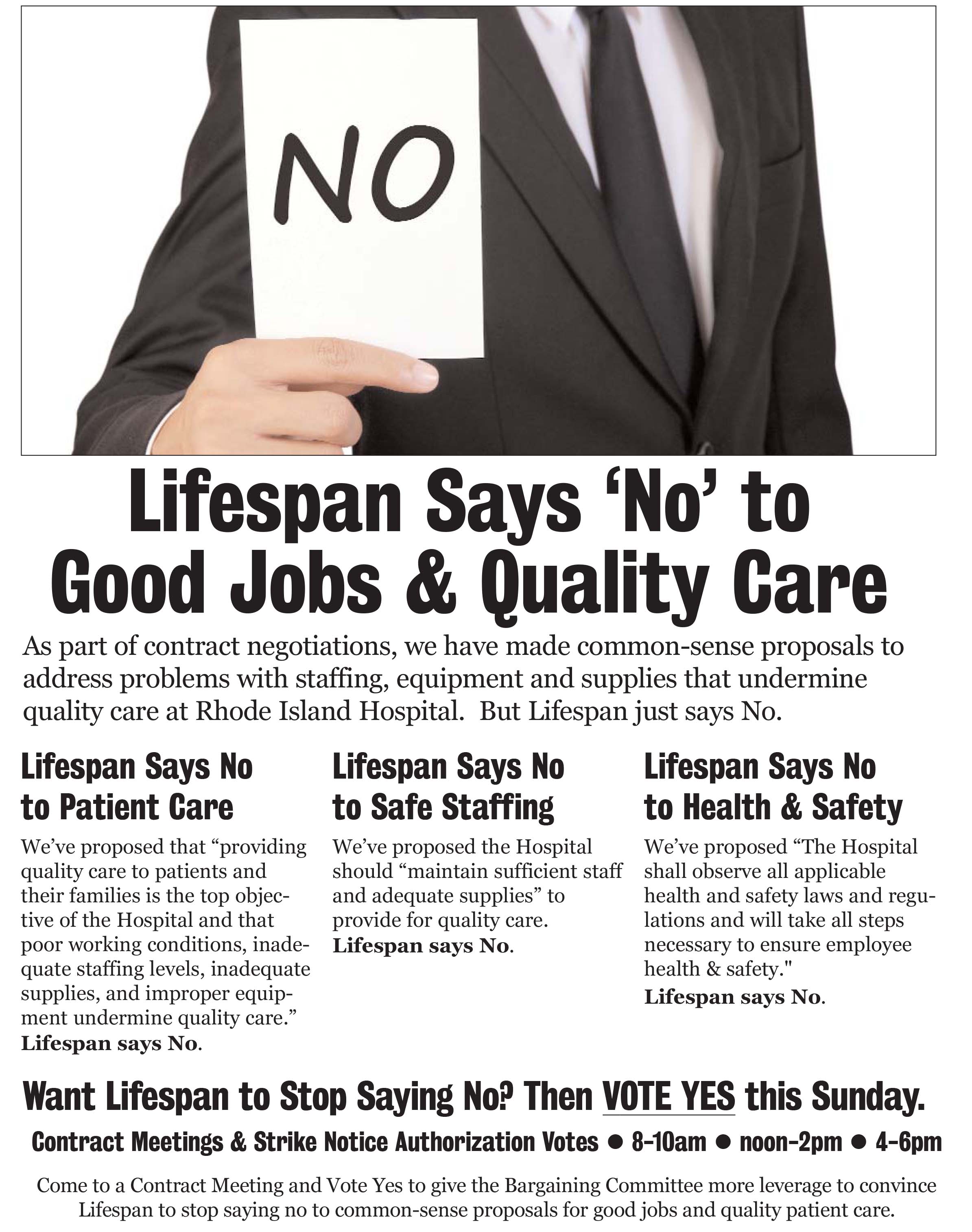
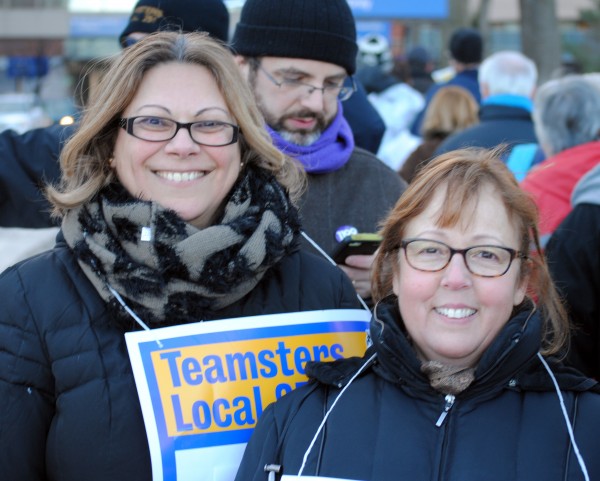

 Yesterday an “
Yesterday an “
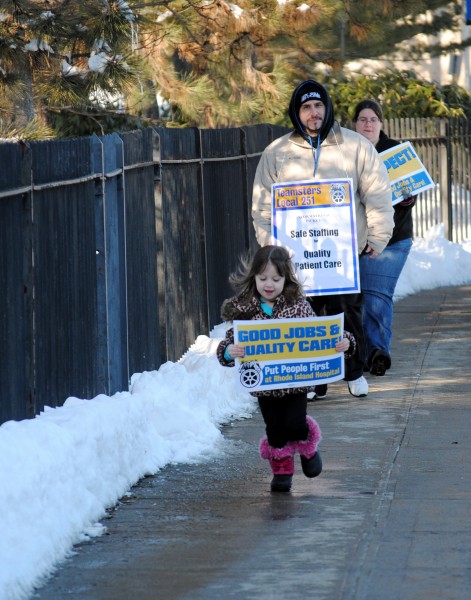 Lifespan has also rejected the union’s proposals on “job security, fair wages and benefits,” which the union calls “a slap in the face to every Rhode Island Hospital employee and every person in the community that is concerned about good jobs and quality patient care.”
Lifespan has also rejected the union’s proposals on “job security, fair wages and benefits,” which the union calls “a slap in the face to every Rhode Island Hospital employee and every person in the community that is concerned about good jobs and quality patient care.”
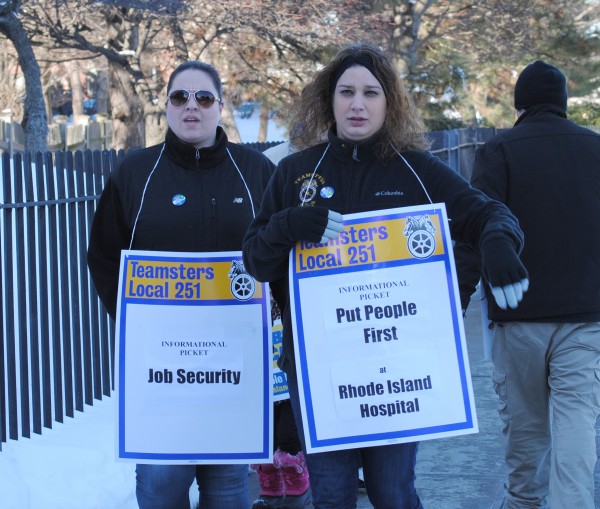
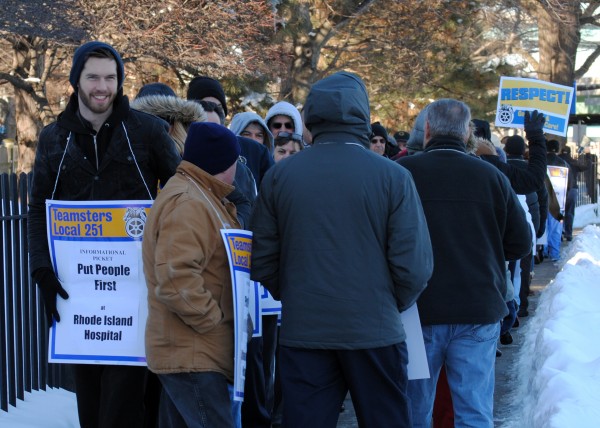
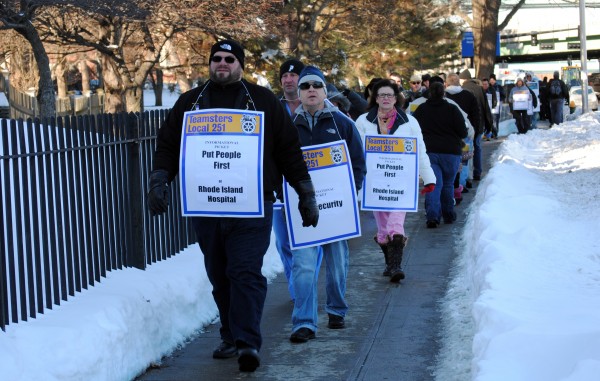
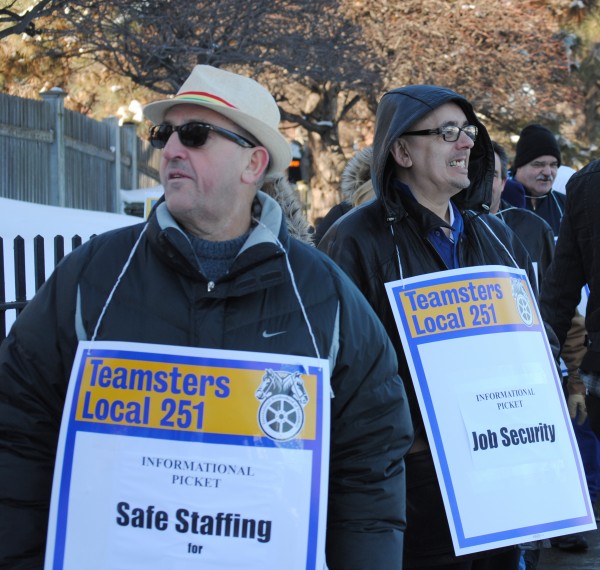
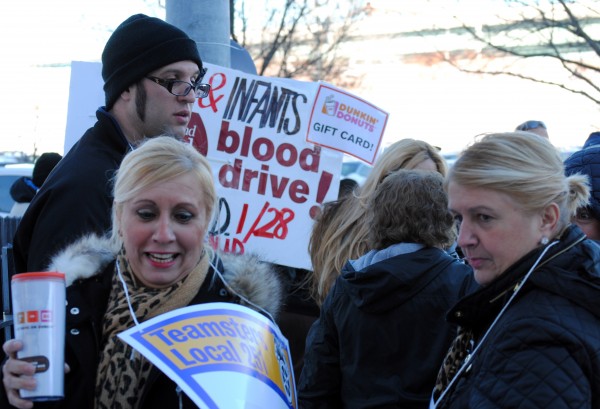
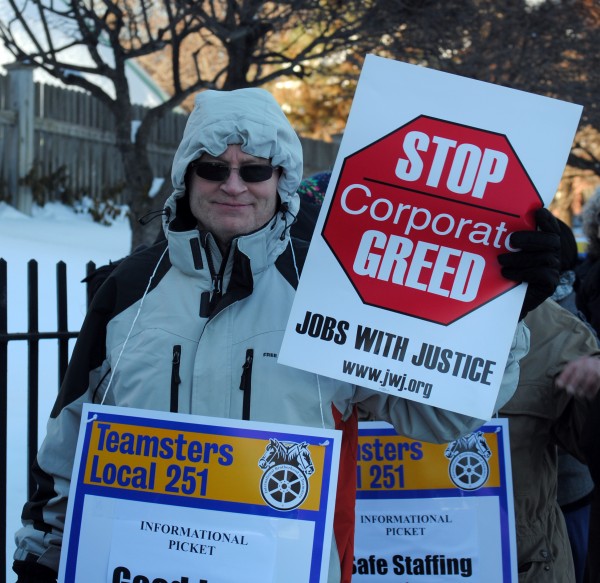
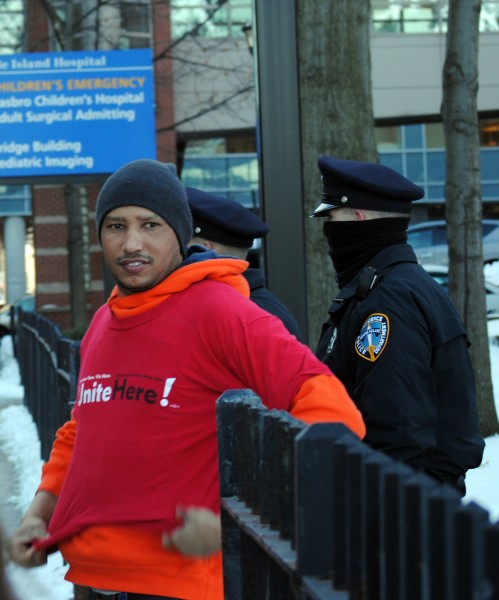
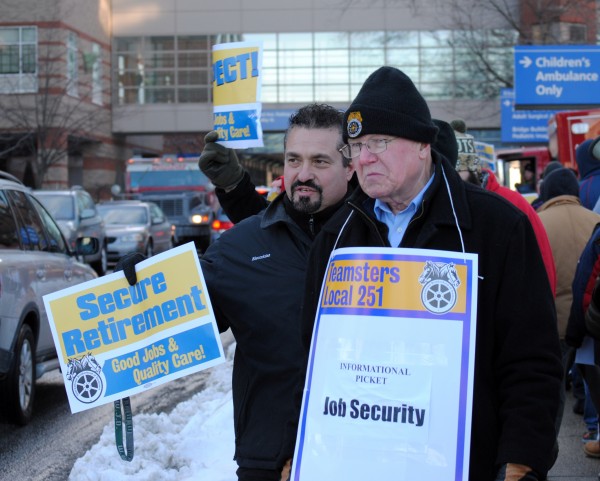
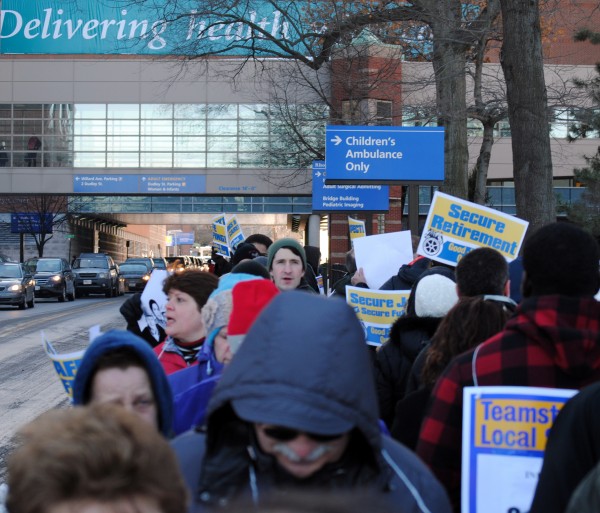
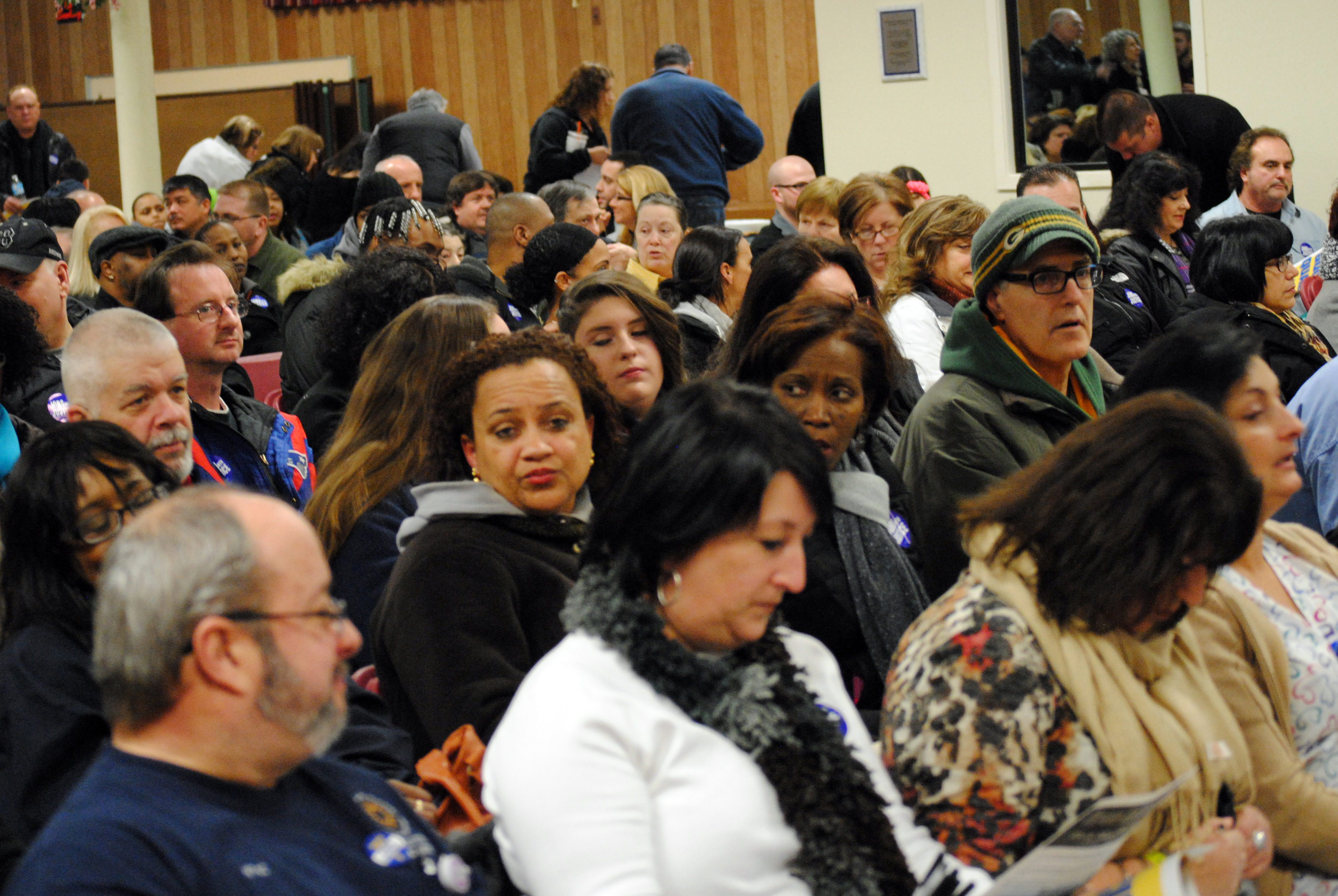
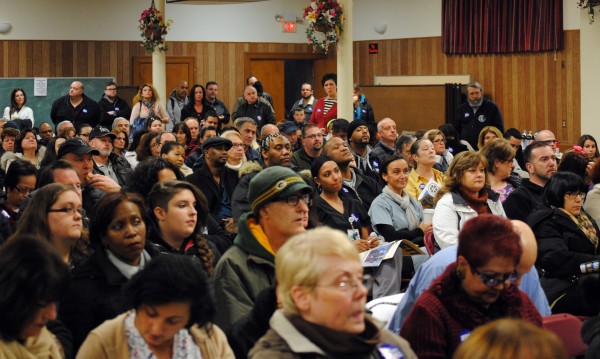 More than 500 people crowded into the meeting room of Our Lady of the Rosary Church on Benefit St in Providence for the
More than 500 people crowded into the meeting room of Our Lady of the Rosary Church on Benefit St in Providence for the 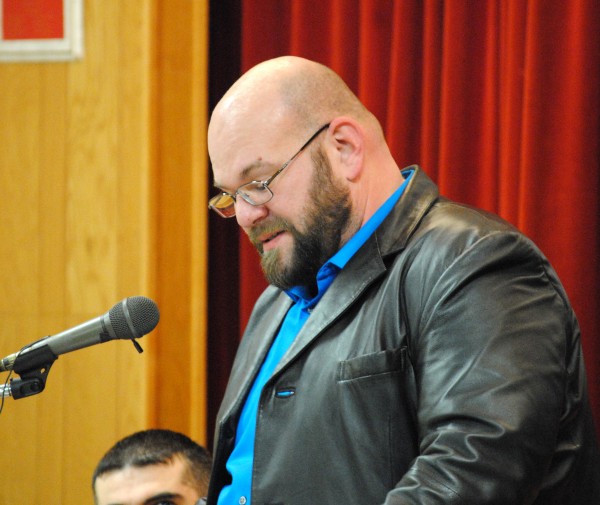 According to Local 251, “As a non-profit entity, Lifespan and RI Hospital are supposed to put the healthcare needs of the community first. Unfortunately, management has taken cost cutting measures, causing shortages in equipment and staff that undermine patient care.”
According to Local 251, “As a non-profit entity, Lifespan and RI Hospital are supposed to put the healthcare needs of the community first. Unfortunately, management has taken cost cutting measures, causing shortages in equipment and staff that undermine patient care.”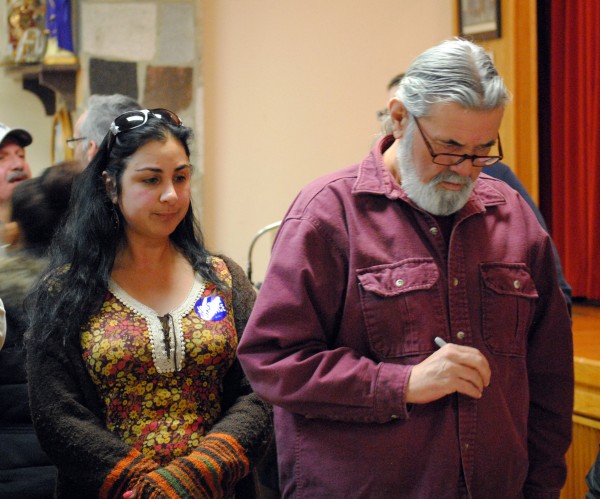 Obamacare has allowed Lifespan/RI Hospital to take in an additional
Obamacare has allowed Lifespan/RI Hospital to take in an additional 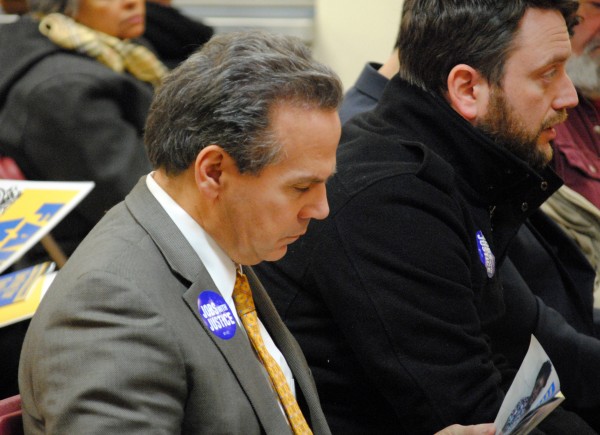 The Speakout was intended to show community support for the workers of RI Hospital, and was attended by Representatives David Cicilline and Jim Langevin, as well as General treasurer Seth Magaziner. There were also representatives from many other unions and community groups such as Jobs with Justice, Unite Here! and Fuerza Laboral. Many religious leaders, including Father Joseph Escobar and Rev Duane Clinker, were on hand to show support.
The Speakout was intended to show community support for the workers of RI Hospital, and was attended by Representatives David Cicilline and Jim Langevin, as well as General treasurer Seth Magaziner. There were also representatives from many other unions and community groups such as Jobs with Justice, Unite Here! and Fuerza Laboral. Many religious leaders, including Father Joseph Escobar and Rev Duane Clinker, were on hand to show support.